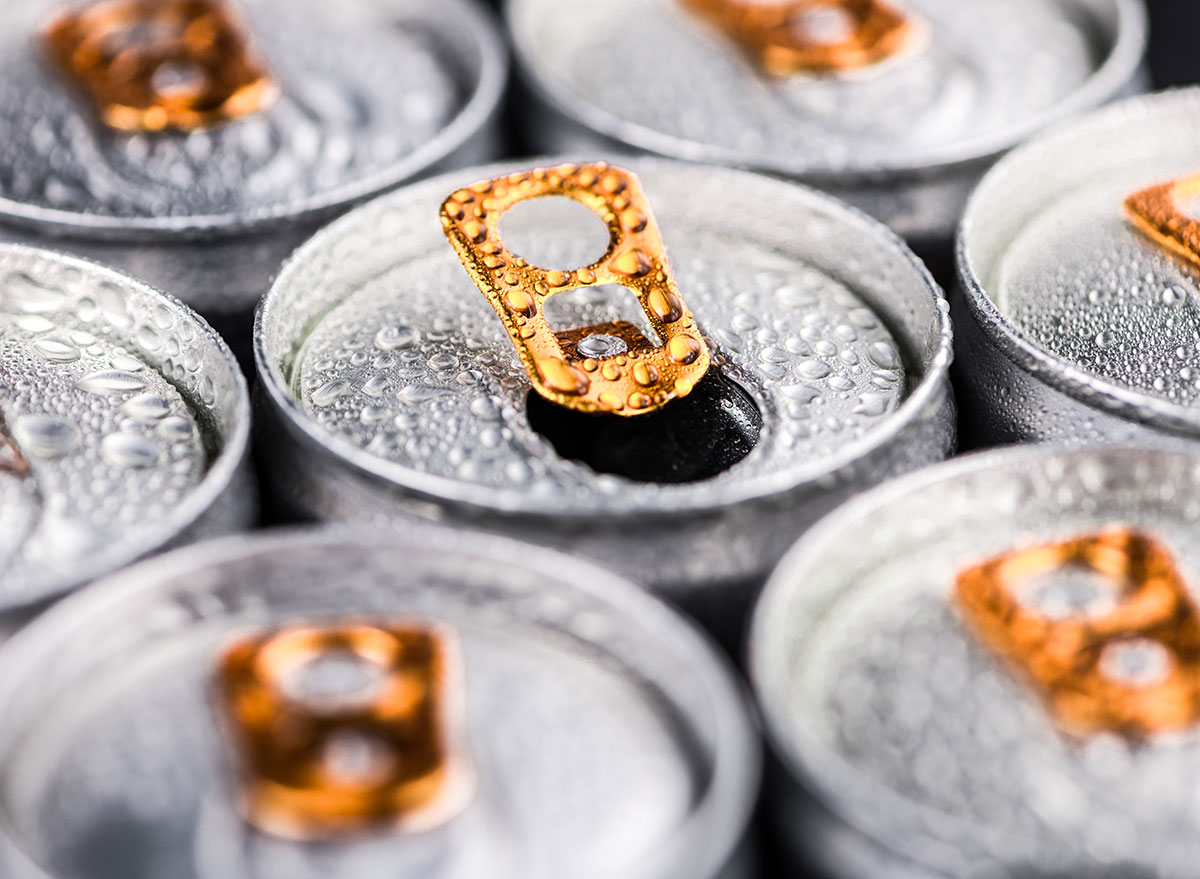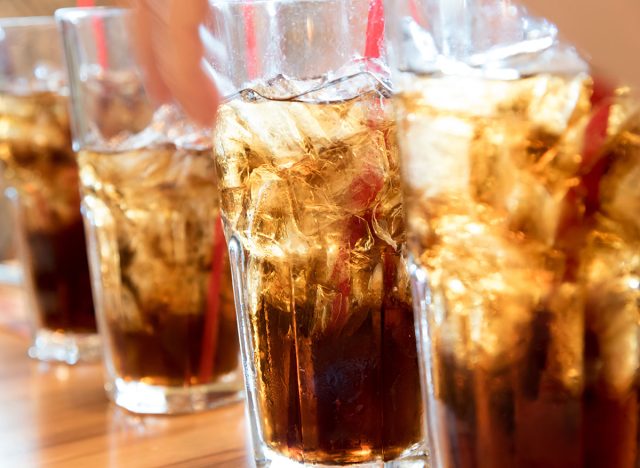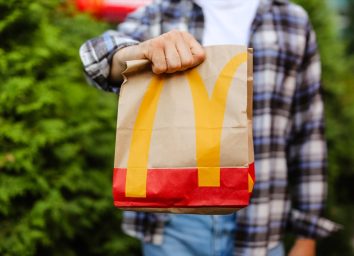These Popular Drinks May Increase Cancer Risk, New Study Suggests

If you're grabbing a beverage on the go, unless you're specifically looking for organic or all-natural options, odds are you're going to end up drinking something with at least some ingredients you don't recognize. Some of those substances, however, could be putting your health at risk.
Now, a new study suggests that ingesting artificial sweeteners often found in drinks like soda and energy drinks can leave you in greater danger of getting cancer.
In the study, published in late March in the journal PLOS Medicine, researchers examined information from a questionnaire about the nutrition and health of more than 100,000 French adults. Following up over a median period of about eight years, they compared how people's consumption of different artificial sweeteners impacted their risk of various kinds of cancer and of cancer overall.

Related: The #1 Best Juice to Drink Every Day, Says Science
"To our knowledge, no previous cohort study had directly investigated the associations between quantitative artificial sweetener intakes per se — distinguishing the different types of sweeteners — and cancer risk," study authors Charlotte Debras and Dr Mathilde Touvier of the Nutritional Epidemiology Research Team (EREN) at the French Institute for Health and Medical Research (Inserm) at Sorbonne Paris Nord University tell Eat This, Not That!. "In this large population-based study…artificial sweeteners (especially aspartame and acesulfame-K), which are used in many food and beverage brands worldwide, were associated with increased cancer risk."
Moreover, prior studies have linked aspartame with increased blood sugar and inflammation as well as with raising your risk of insulin insensitivity. Acesulfame-K, for its part, has been previously linked with cancer as well as with glucose intolerance. According to the U.S. Food and Drug Administration (FDA), aspartame is found in gum, cereal, certain beverages, and more, while acesulfame-K can be found in frozen sweets, candy, drinks, and baked goods.
That being said, the study authors noted that this study doesn't tell us for sure that there's a causal relationship. That is, the higher chance of getting cancer might not be the direct result of consuming these artificial sweeteners.
"These results need to be replicated in other large-scale cohorts and underlying mechanisms should be clarified by further experimental studies," Debras and Touvier say. "Besides, they should not be interpreted as [a suggestion] to consume sugar rather than artificial sweeteners! Excessive sugar intake is definitely causing many chronic diseases … and should also be limited."
For more on how artificial sweeteners can affect your body, What Are Artificial Sweeteners? And Why They're in Your Food.









